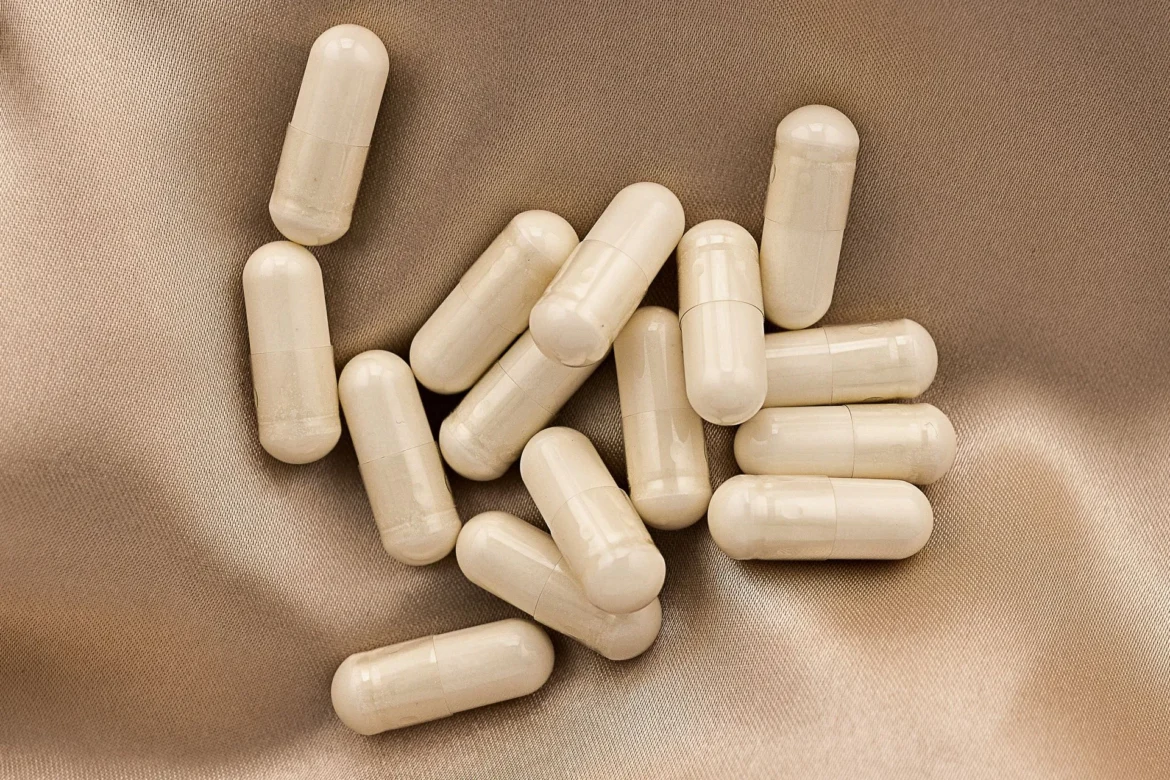Your cart is currently empty!
Truly a Miracle Substance: NAC

The Benefits N-Acetyl Cysteine
N-Acetyl Cysteine (NAC) is an essential amino acid, and a chemical precursor to glutathione, one of the body’s most important antioxidant compounds in the body because it boosts the utilization and recycling of other antioxidants. Antioxidants help protect cells against free radicals* and glutathione is particularly important to protect the neurons. It assists the liver in detoxifying harmful substances, and nourishes the brain. Our bodies can produce glutathione only if our intake of methionine and serine are sufficient. (Methionine is an essential amino that helps to build molecules important for cell and DNA function. Serine is an essential amino acid that helps us synthesize protein.)
Glutathione helps neutralize the free radicals that can damage cells and tissues. If there is an increase of free radicals to an unhealthy level, oxidative stress occurs which leads to cell damage. A balance of free radicals and antioxidants in the body is essential. Free radicals cause oxidative stress; antioxidants protect us from oxidative stress. This plays a role in many conditions such as cancer, Alzheimer’s disease, many degenerative eye diseases, and heart disease, and support of the body’s natural immune system.
Oxidative stress plays an important role in the development of many eye diseases. Conditions such as macular degeneration, diabetic retinopathy, glaucoma, and retinitis pigmentosa can benefit from the intake of NAC. Because the eyes are essentially part of the brain, substances or deficiencies that affect the brain can potentially affect the eyes; optic nerve and retina.
NAC replenishes glutathione and regulates brain glutamate levels to boost brain health. Glutamate, brain’s most important neurotransmitter is involved in a range of learning, behavior and memory functions, while glutathione helps reduce brain cell oxidatative damage associated with aging. NAC may slow the loss of thinking ability in people with Alzheimer’s disease. Parkinson’s disease is characterized by the deterioration of cells that generate the neurotransmitter dopamine. NAC supplements appear to improve both dopamine function and disease symptoms such as tremors. While glutamate is required for regular brain activity, glutamate and glutathione depletion can cause brain damage, possibly contributing to mental health conditions such as bipolar disorder, schizophrenia, OCD, and substance abuse.
NAC can relieve symptoms of respiratory conditions by acting as an antioxidant and expectorant, loosening mucus in your air passageways. It helps replenish glutathione levels in your lungs and reduces inflammation in your bronchial tubes and lungs. COPD sufferers experience long-term oxidative damage and inflammation of lung tissue, causing airway constriction, shortness of breath and cough. NAC also helps with chronic bronchitis. Bronchitis occurs when mucous membranes in the bronchial passageways become inflamed, swell and shut off the airways. By thinning the mucus and boosting glutathione levels, NAC may help decrease the severity and frequency of wheezing, coughing and respiratory attacks. In addition, cystic fibrosis, asthma, and pulmonary fibrosis, sinus congestion due to allergies, and infections can benefit as well.
High blood sugar and obesity contribute to inflammation in fat tissue. This can damage or destroy insulin receptors and increase the risk of type II diabetes. Animal studies show that NAC may stabilize blood sugar by decreasing inflammation in fat cells and improving insulin resistance. Sugar is properly removed from the blood when insulin receptors are healthy.
Oxidative damage to heart tissue can lead to heart disease, heart attacks, heart conditions and strokes. NAC may reduce heart disease risk by reducing oxidative damage to tissues in your heart. Studies show that NAC may protect heart function and heart health in people with diabetes and those recovering from some heart surgeries.
NAC and glutathione benefit immune health and restore immune function.
NAC has been shown to improve male fertility. Male infertility accounts for about 50% of all cases of infertility. Antioxidant levels need to be sufficient to address free radical formation in the reproductive system. NAC may also improve fertility in older women and those with polycystic ovary syndrome (PCOS) by inducing the ovulation cycle.
Glutathione levels are affected by many factors: genetics, inadequate diet, stress, alcohol consumption. Low levels of glutathione have been associated with various health problems such as liver disease, eye diseases, HIV, Parkinson’s disease, cancer and aging. NAC plays an important role in the body’s detoxification process. It can help prevent side effects of environmental toxin exposure. Glutathione foods include antioxidants that facilitate the production of glutathione. Certain micronutrients with antioxidant and metabolic properties are critical to the body’s glutathione production process. These include carnitine, selenium and alpha lipoic acid. Cysteine can be found in beef, chicken, pork, and turkey. Vegetable sources of cysteine come from the legume family, lentils being very high. Carrots, seaweed, peas, mustard greens and asparagus also provide cysteine.
*Free radicals are highly reactive and unstable molecules that are made by the body as a byproduct of normal metabolism and exposure to toxins and UV light. They can damage DNA, sometimes causing mutations that can increase the risk of heart disease and cancer. The availability of free radicals creates something called oxidative stress in the body.
Sources
Healthline, “What are the Health Benefits of NAC” Amy Goodson, MS, RD, CSSD, LD. Medically reviewed by Ami Patel PharmD, BCPS, January 12, 2024
Medical News Today, “What are the Benefits of NAC (N-Acetyl Cysteine)? Rachel Nall, MSN, CRNA, April 11, 2023

Leave a Reply